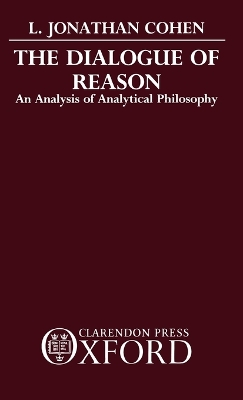Clarendon Paperbacks
1 total work
Analytical philosophy now embraces a much greater variety of topic and divergence of opinion than it once did. What presuppositions of relevance are implicit in its dialogue, what patterns of reasoning does it rely on, and why is consensus so hard to achieve? The author seeks to resolve these questions in an original and constructive way that also illuminates several important issues of philosophical substance, such as the question of whether the linguistic analysis
of thought should be replaced by a computational one.
of thought should be replaced by a computational one.
